Product Management Chronicles: Managing the Delivery of Muzira - a Music App
The third time is the charm...
The third time, they say, is the charm, and this third week of the SideHustle 7.0 Bootcamp was indeed no different. This week's task was quite interesting as we were furthermore thrust into the cross-functional world of Product management. So then, what was this charming task? This time, we were tasked to manage the engineering team to deliver a Music App, as well as, document the process, lessons, retrospectives, and challenges faced.
So what's so charming you may wonder? Well, we were able to experience a different aspect of Product Management - cross-functional team management, that's what. Not just that, but also get more familiar with using Jira and Figma, which is the major tool for the engineering team. The engineering team comprised both FrontEnd and BackEnd teams who worked together to create the music app. We were paired with three other product management teams to work with the FE & BE teams assigned to us. It felt quite overwhelming contemplating the various possibilities of how the task could go and what working with three other teams would look like. However, as product managers, we remembered the very first rule of the game - 'take a deep breath and drink enough water', and so we did.
Our team lead got to work by reaching out to the other leads in the teams we were to work with and they successfully agreed to a meeting for all the PM teams by 11 am on Monday. The meeting was to formally acquaint all Product Management team members with ourselves. During the meeting, we identified that we needed to select a chairperson who would be the main interface with all the leads of the teams (PMs, FE & BE) to establish a proper chain of command and ensure a swift and orderly delivery of the task.
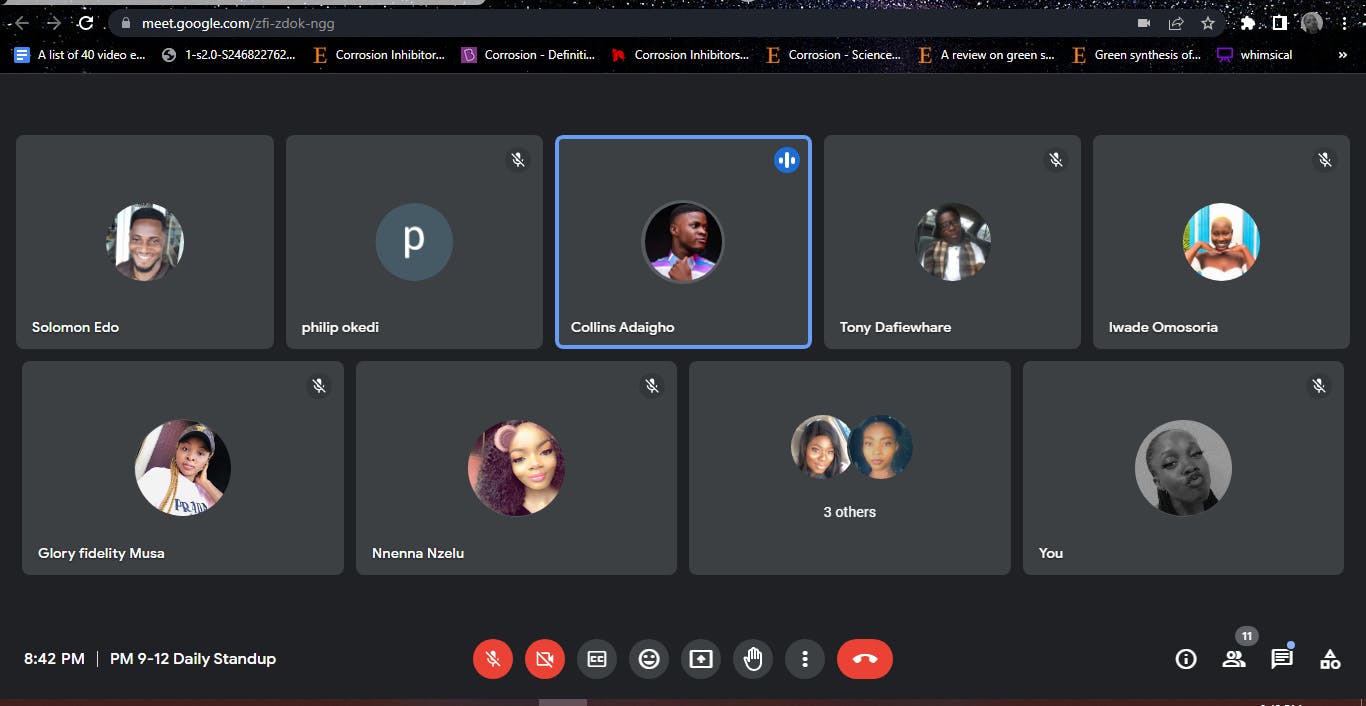
Vaikosen Oghenekevwe volunteered and was agreed by all at the meeting to be the chairperson. (Our team lead valiantly leading the way, go Amazon!). We also agreed to a daily time of 8:30 pm where every member of all teams involved in this week's task would come together to discuss our progress, research, challenges, and everything else, and finally, create a Jira workspace for all teams. Another meeting was held afterwards with all PM leads and FE & BE leads to acquaint them with themselves and get all the necessary details from the FE & BE teams as regards the task. The app was called Muzira and the link to the Figma space they would be creating the task on was shared.
DAILY RETROSPECTIVES
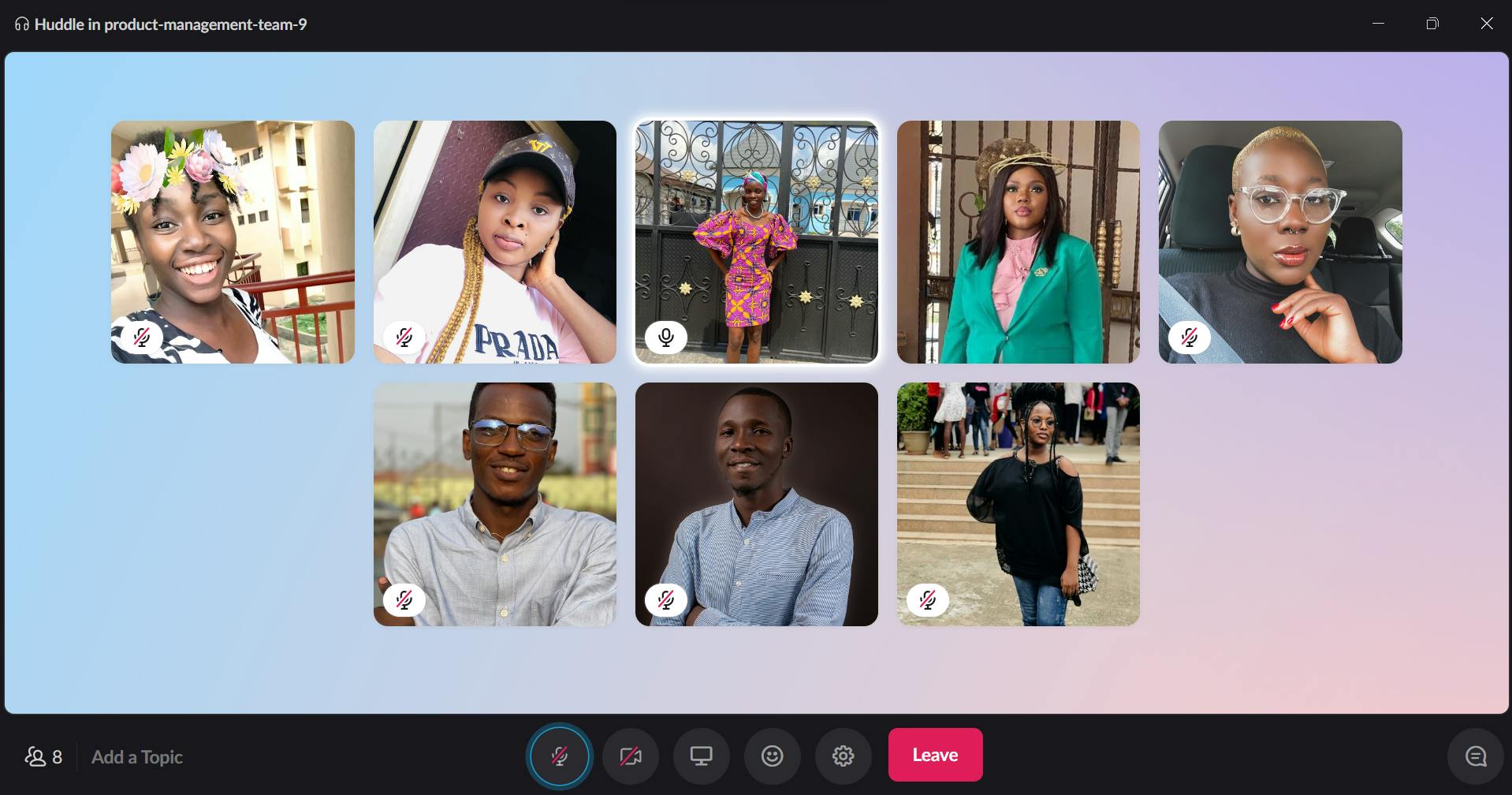
Throughout the week, we had our individual team's stand-up by 8:00 am every morning in a Slack huddle and the general team meeting by 8:30 pm every evening via Google Meet. This enabled us to effectively monitor the task, track all progress, and share new developments.
On Tuesday, the features document created by the FE & BE teams was ready and sent to the PM team leads for viewing. To this end, a Jira workspace was created for all team leads to efficiently manage and assign tasks. The features were backlogged into a sprint and assigned to various teams to develop their respective user stories and acceptance criteria.
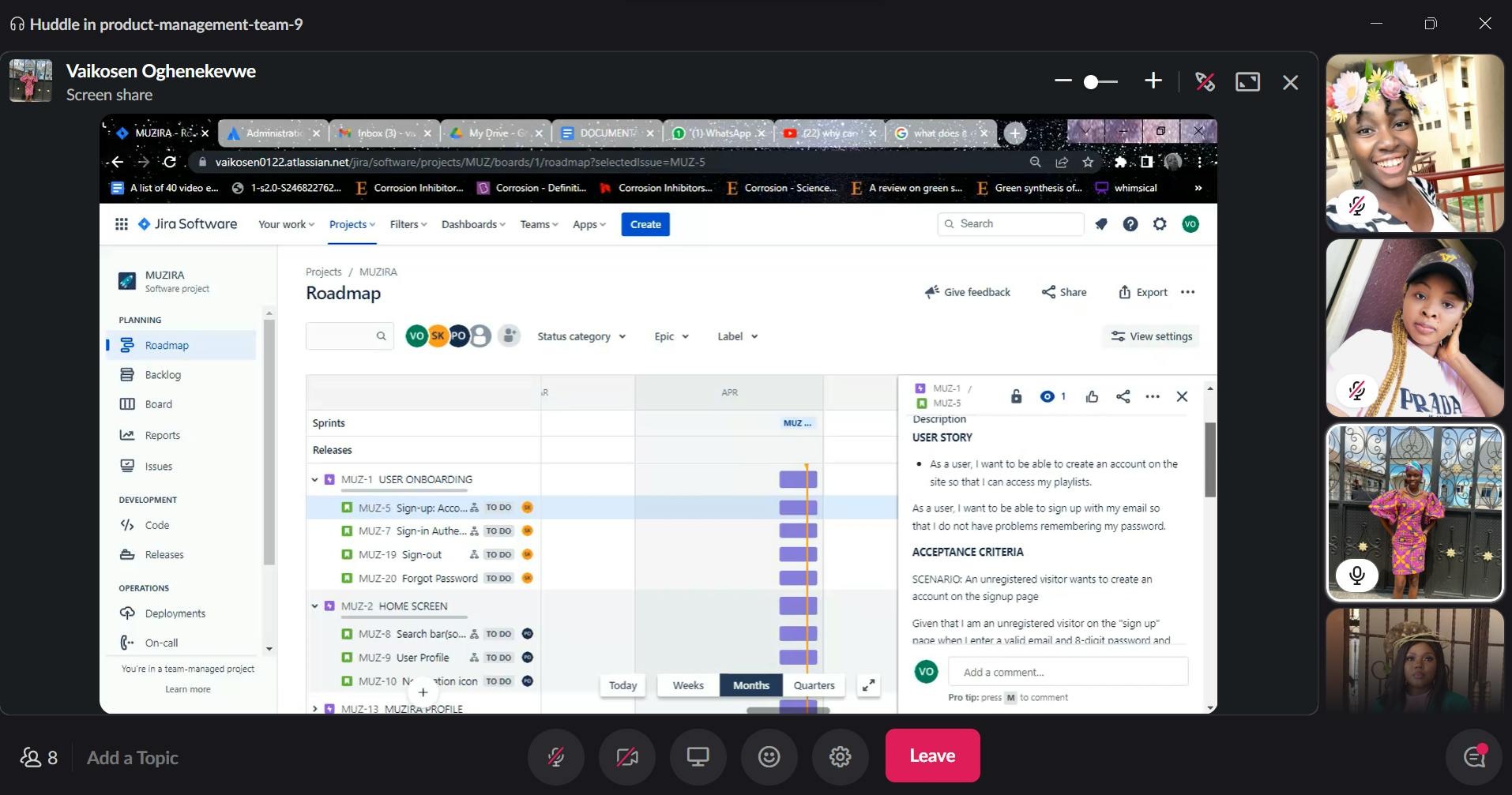
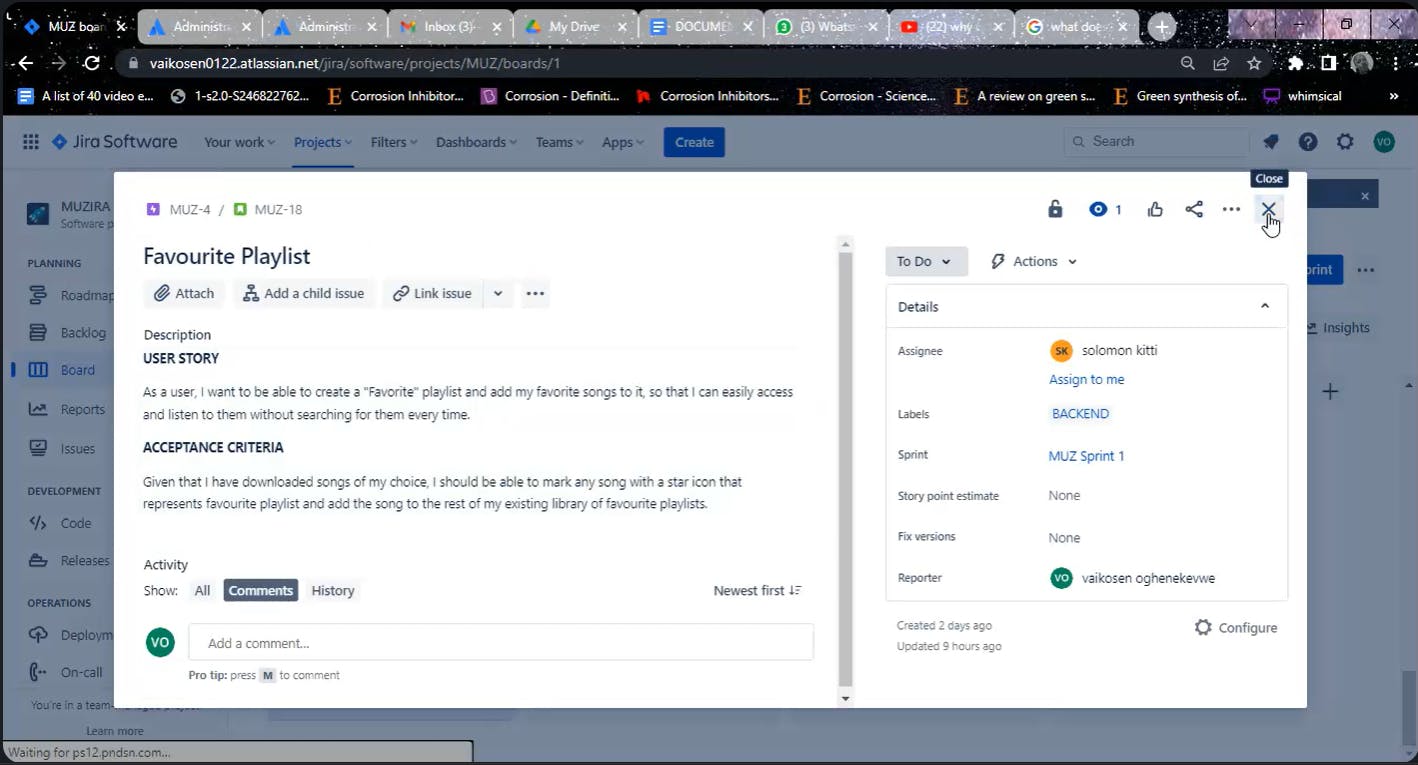
During the general stand-up, the FE lead shared his screen and explained the components of the app and the terminologies we needed to get familiar with. By Wednesday, a general board was created for all team members for better collaboration. On Thursday various loopholes were discovered in some of the API pages. Later on, the BE team sent in a list of all API links with their respective labels.
By Friday, the website was hosted and available for testing. Although certain bugs were discovered in some APIs, the site was live for desktop navigation (but was still yet to be integrated with mobile devices) and music could be played on Muzira. Whoohoo! Let's get it!
A live test run was done during our stand up meeting and the FE lead took us through the various components that had all been successfully integrated and those pending. All desktop website integrations were completed by Sunday and the mobile responsiveness was being finalized. Las Las, joy cometh in the morning!
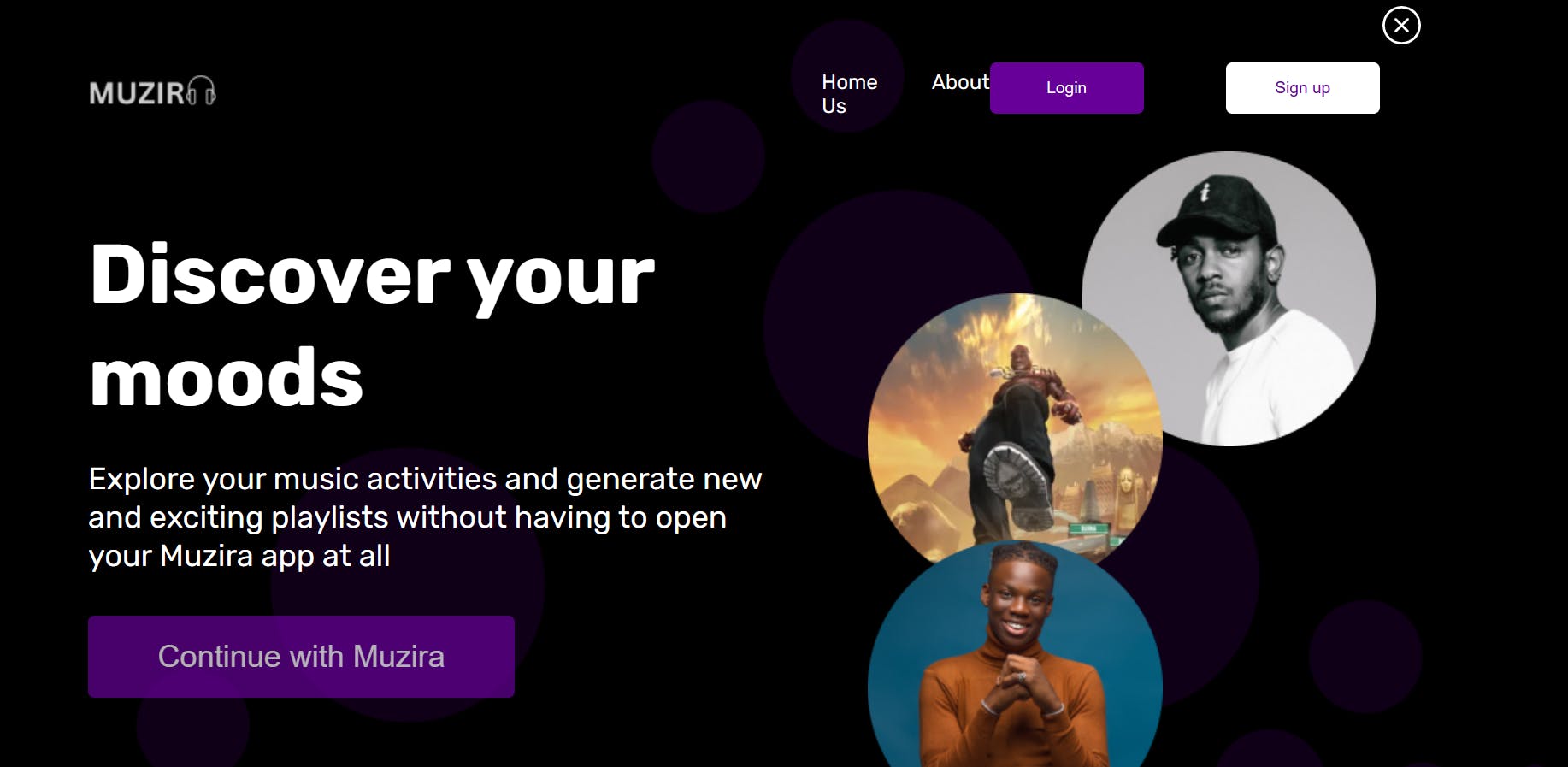
CHALLENGES
We experienced multiple challenges in the course of this task. The challenges started coming in by Wednesday as a discovery was made that Jira had a restriction on the number of people that can be admitted to the board on the free plan. The result? We were unable to all be on the board. A major challenge was with the BackEnd team as their unavailability in meetings and lack of proper communication made the task tiresome. This gravely affected the FrontEnd team who depended a lot on them to progress with their parts. This lack of collaboration brought about a lot of conflicting reports from the developers.
There was also the limited commitment from the members of the FE team, as most members had electricity and network issues which made them unavailable for meetings and work. Ultimately, this caused a strain on the few available members and prevented the developers from delivering their task reports as and when due which unfortunately prolonged the duration of the task.
The developers were also unfamiliar with working with Jira and they were unable to properly document the progress of tasks. All these led to an extension of the task submission.
LESSONS & CONCLUSION
This week's task came with mixed feelings because we did not have much to do physically as product managers, as we are used to, yet, we had a lot of mental work to do. Managing people indeed is not an easy feat, and this week proved that. However, a lot of lessons were learned as we were truly put to the test as product managers.
Despite all challenges that arose we were able to Pivot - Thinking on your feet is of utmost importance as PMs, things will not always go as planned and alternatives must be developed to ensure the show goes on schedule. We also learned to Practice Patience - We humans are well, humans and this means we are very fallible. This is why empathy is an important trait for a PM, not only with the customers but with those they work with. This is the only way to ensure continued collaboration despite setbacks. Growth is the ultimate lesson and can never be overemphasized. We definitely did grow in our knowledge of and dexterity in Jira, Figma, collaboration, time and people management.
